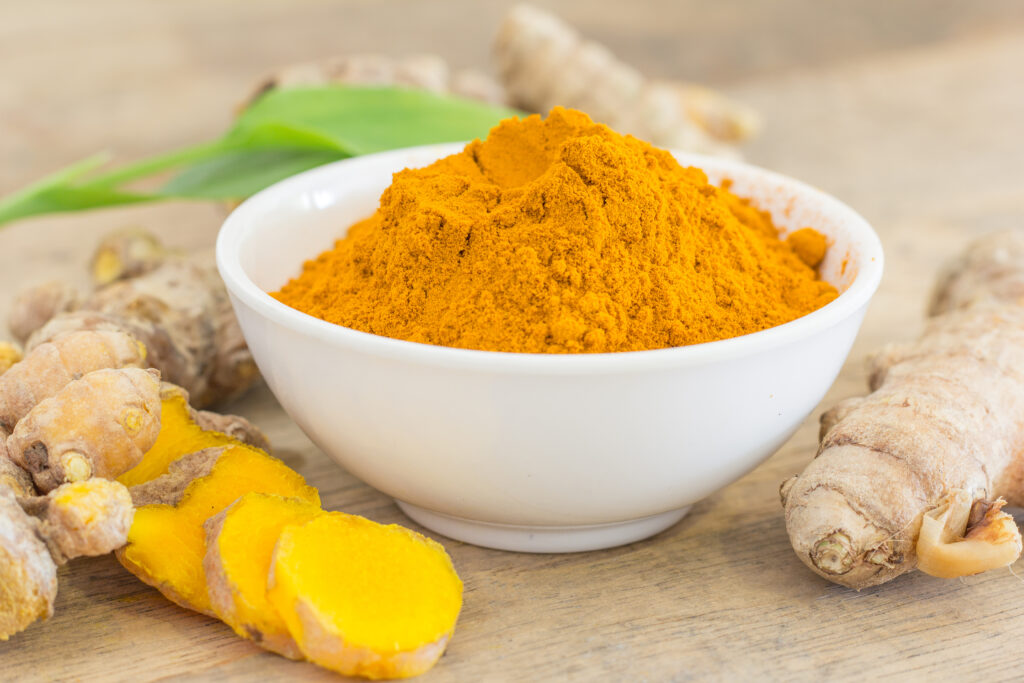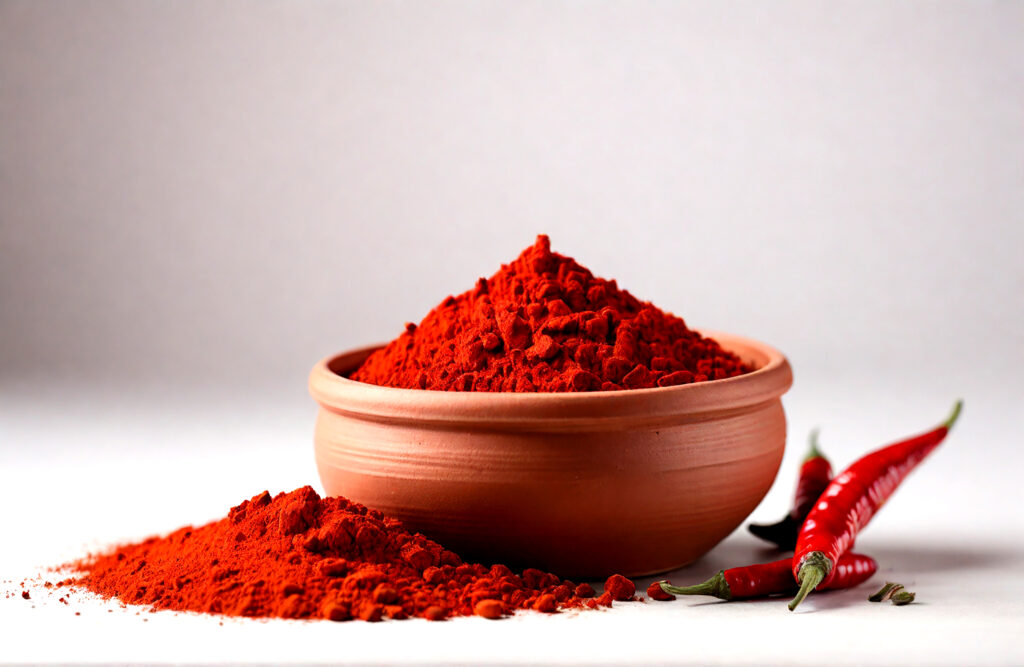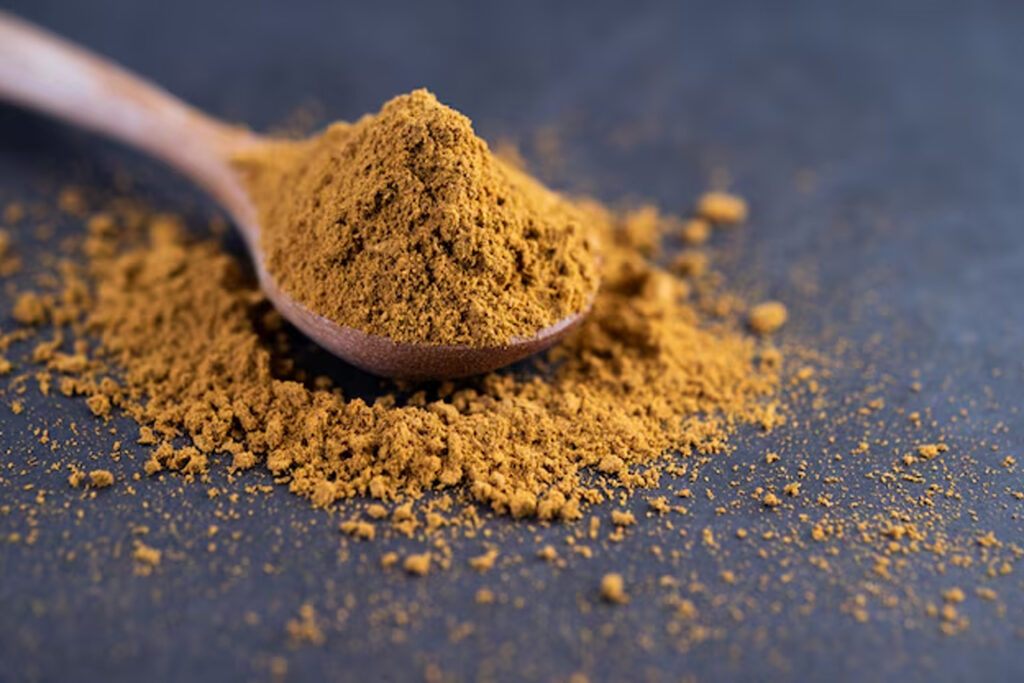Ginger Powder

Product Name
Ginger Powder
Origin
India
Type
Powder
Ginger Powderis a widely used spice made by drying and grinding the root of the Ginger Plant (Zingiber officinale), which originates from Southeast Asia. Valued for centuries for both its culinary and medicinal uses, ginger powder has a warm, slightly sweet, and peppery flavor. The fine, yellowish powder adds a distinctive kick to a wide variety of dishes around the world—ranging from savory curries and stir-fries to baked goods and sweet treats.
Beyond its culinary appeal, ginger powder is also recognized for its potential health benefits, such as supporting digestion, easing nausea, and offering anti-inflammatory properties. With a rich cultural heritage and global popularity, ginger powder continues to play a vital role in both traditional cooking and natural wellness practices.
FAQs
Nutritional Information & Health Benefits
What are the key nutrients in ginger powder?
Ginger powder contains vitamins (like B6 and C), minerals (such as magnesium, potassium, and manganese), and bioactive compounds like gingerol.Is ginger powder a good source of antioxidants?
Yes, it’s rich in antioxidants, which help combat oxidative stress and support overall health.Does ginger powder have anti-inflammatory properties?
Yes, ginger contains gingerol, which has well-documented anti-inflammatory and pain-relieving effects.Can ginger powder aid in digestion or nausea?
Ginger is traditionally used to support digestion and relieve nausea, especially motion or morning sickness.How many calories are in 1 teaspoon of ginger powder?
Roughly 6 calories per teaspoon (2 grams), with almost no fat and minimal carbs.What are the key nutrients in ginger powder?
Ginger powder contains vitamins (like B6 and C), minerals (such as magnesium, potassium, and manganese), and bioactive compounds like gingerol.Is ginger powder a good source of antioxidants?
Yes, it’s rich in antioxidants, which help combat oxidative stress and support overall health.Does ginger powder have anti-inflammatory properties?
Yes, ginger contains gingerol, which has well-documented anti-inflammatory and pain-relieving effects.Can ginger powder aid in digestion or nausea?
Ginger is traditionally used to support digestion and relieve nausea, especially motion or morning sickness.How many calories are in 1 teaspoon of ginger powder?
Roughly 6 calories per teaspoon (2 grams), with almost no fat and minimal carbs.
Common Uses of Ginger Powder
- How is ginger powder used in cooking?
Ginger powder adds a warm, spicy flavor to both sweet and savory dishes. It’s commonly used in curries, soups, stir-fries, spice blends, teas, and baked goods like gingerbread. - Can ginger powder be used in beverages?
Yes, it’s widely used in herbal teas, detox drinks, smoothies, and even in some health tonics or turmeric lattes. - Is ginger powder used in traditional medicine?
Yes, in Ayurveda, Traditional Chinese Medicine, and other systems, ginger powder is used to support digestion, reduce inflammation, and boost immunity. - Can it be used topically or in skincare products?
In some natural skincare and wellness practices, ginger powder is used in scrubs, poultices, or face masks due to its warming and anti-inflammatory properties. - Is it suitable for making supplements or capsules?
Absolutely. Ginger powder is often used as a key ingredient in herbal supplements, especially for joint health, digestion, and immune support.
Storage & Shelf Life
- How should ginger powder be stored?
Ginger powder should be stored in an airtight container, in a cool, dry place away from direct sunlight and moisture. - What is the ideal temperature for storing ginger powder?
Room temperature (around 20–25°C / 68–77°F) is ideal. It should not be exposed to heat or humidity. - Can ginger powder be refrigerated or frozen?
While not necessary, refrigeration can extend shelf life if you’re in a hot or humid climate. Just make sure it’s sealed tightly to prevent moisture absorption. - What is the typical shelf life of ginger powder?
Ginger powder generally has a shelf life of 18 to 24 months when How can I tell if ginger powder has gone bad?
If it loses its strong aroma, changes color, or has any signs of mold or clumping, it may have absorbed moisture or spoiled. - Should I use silica gel packets or moisture absorbers in packaging?
Yes, for bulk or export packaging, using moisture absorbers is recommended to maintain freshness and prevent caking. - Does packaging type affect shelf life?
Yes. Airtight, moisture-proof packaging like aluminum foil pouches or food-grade plastic containers helps preserve quality longer than loose or paper packaging.
Get In Touch
Our Certification









